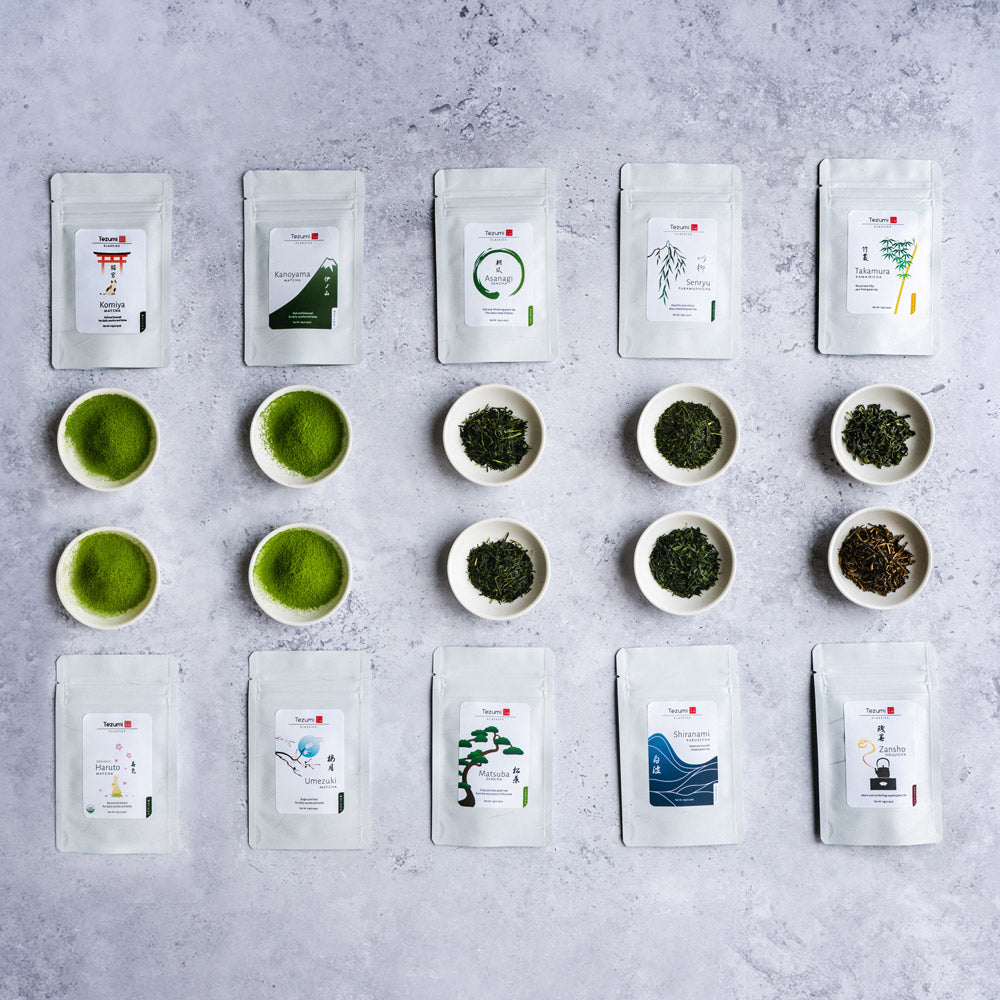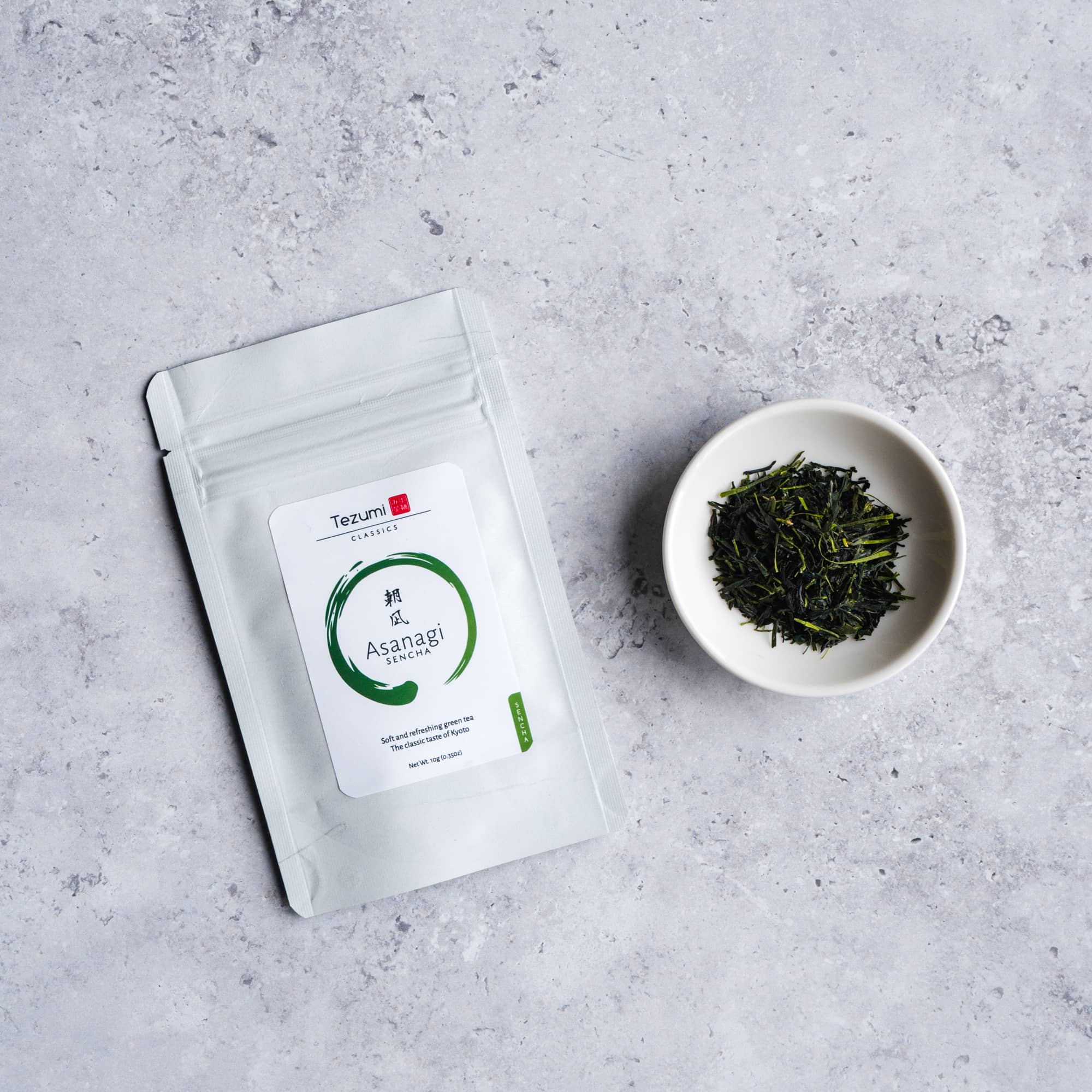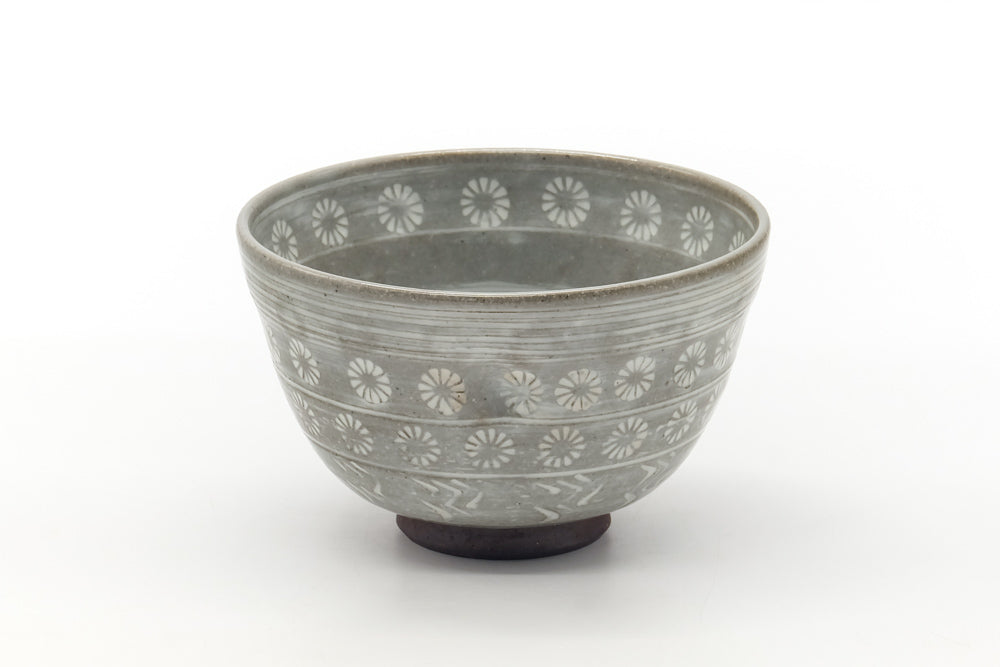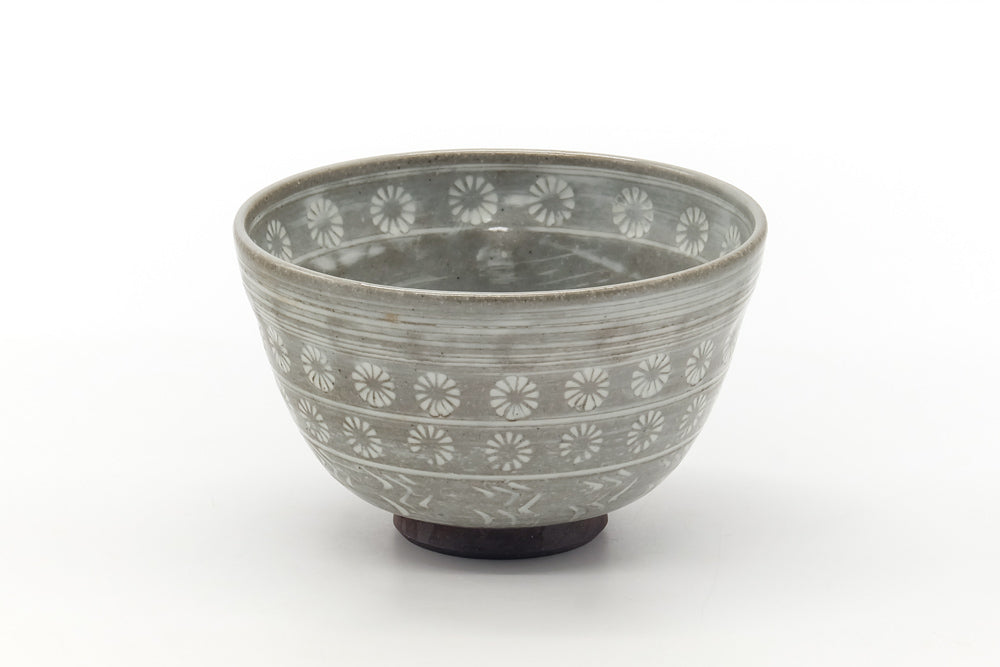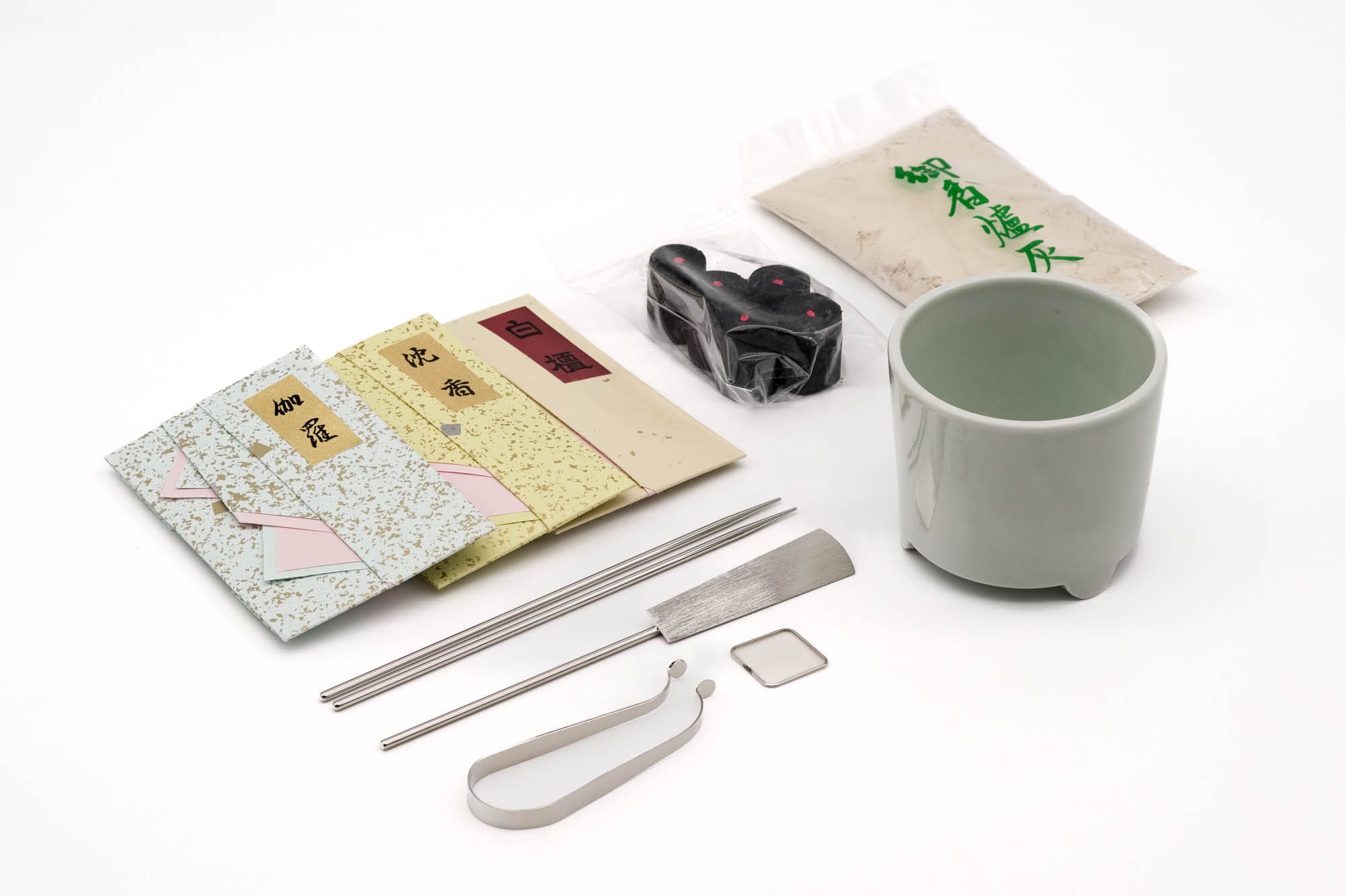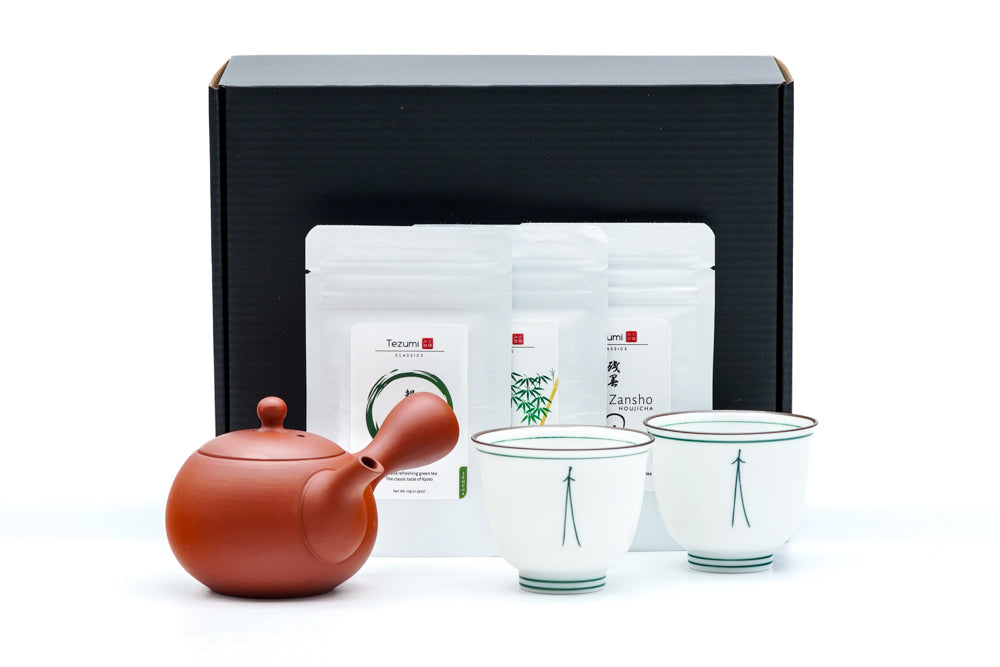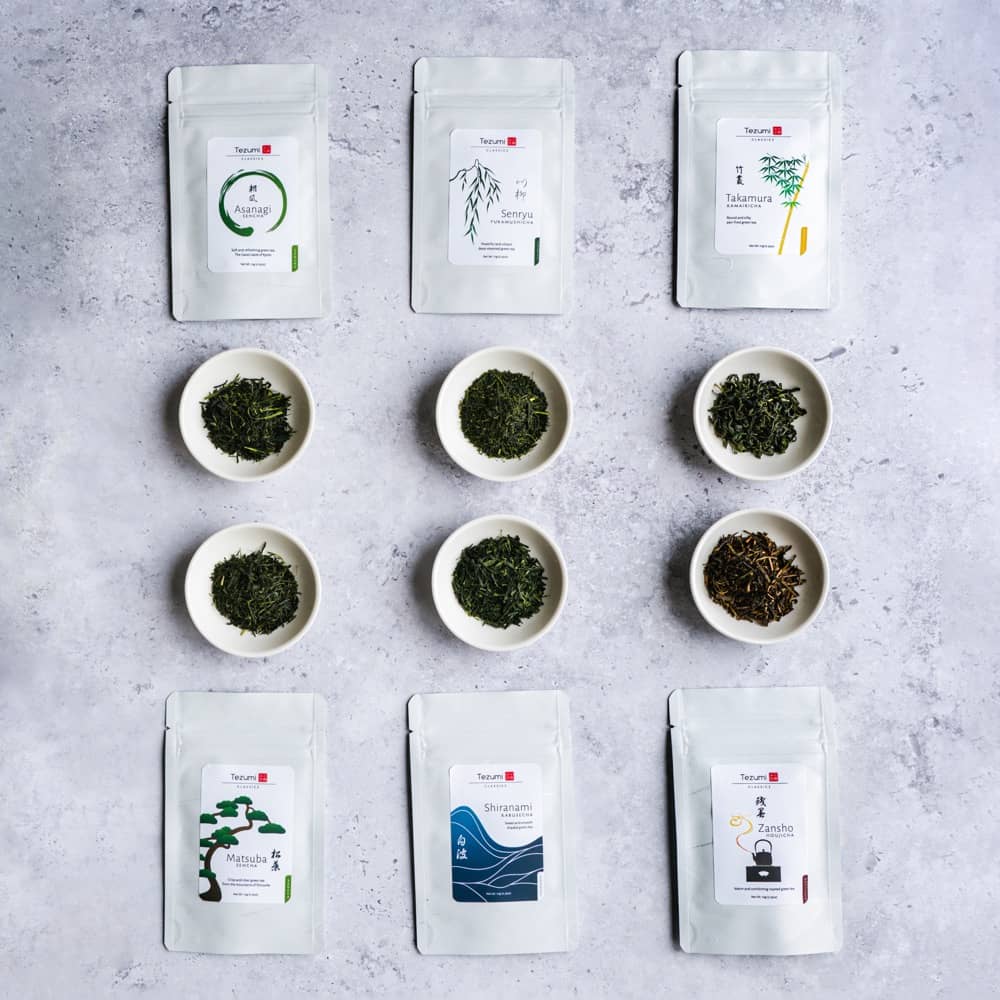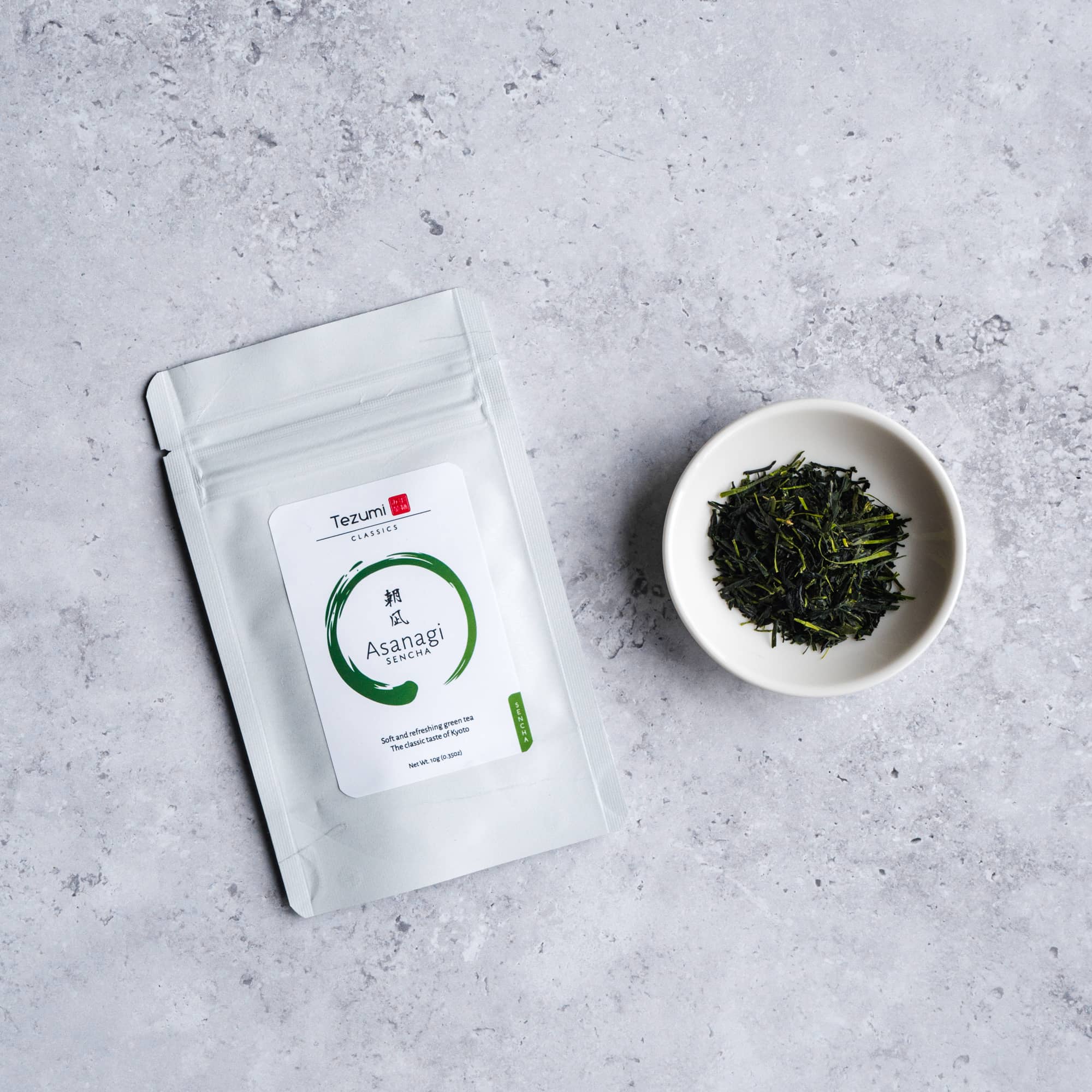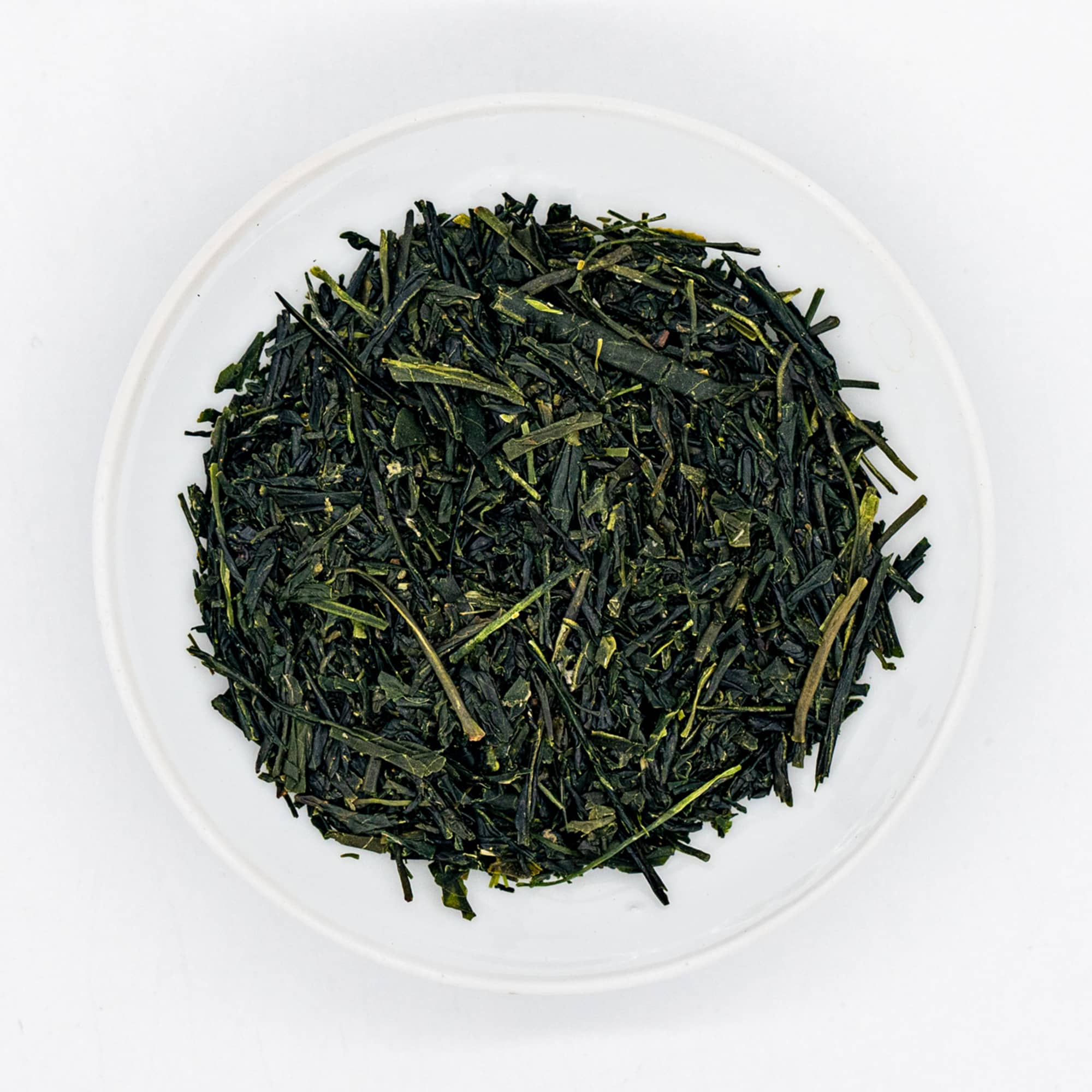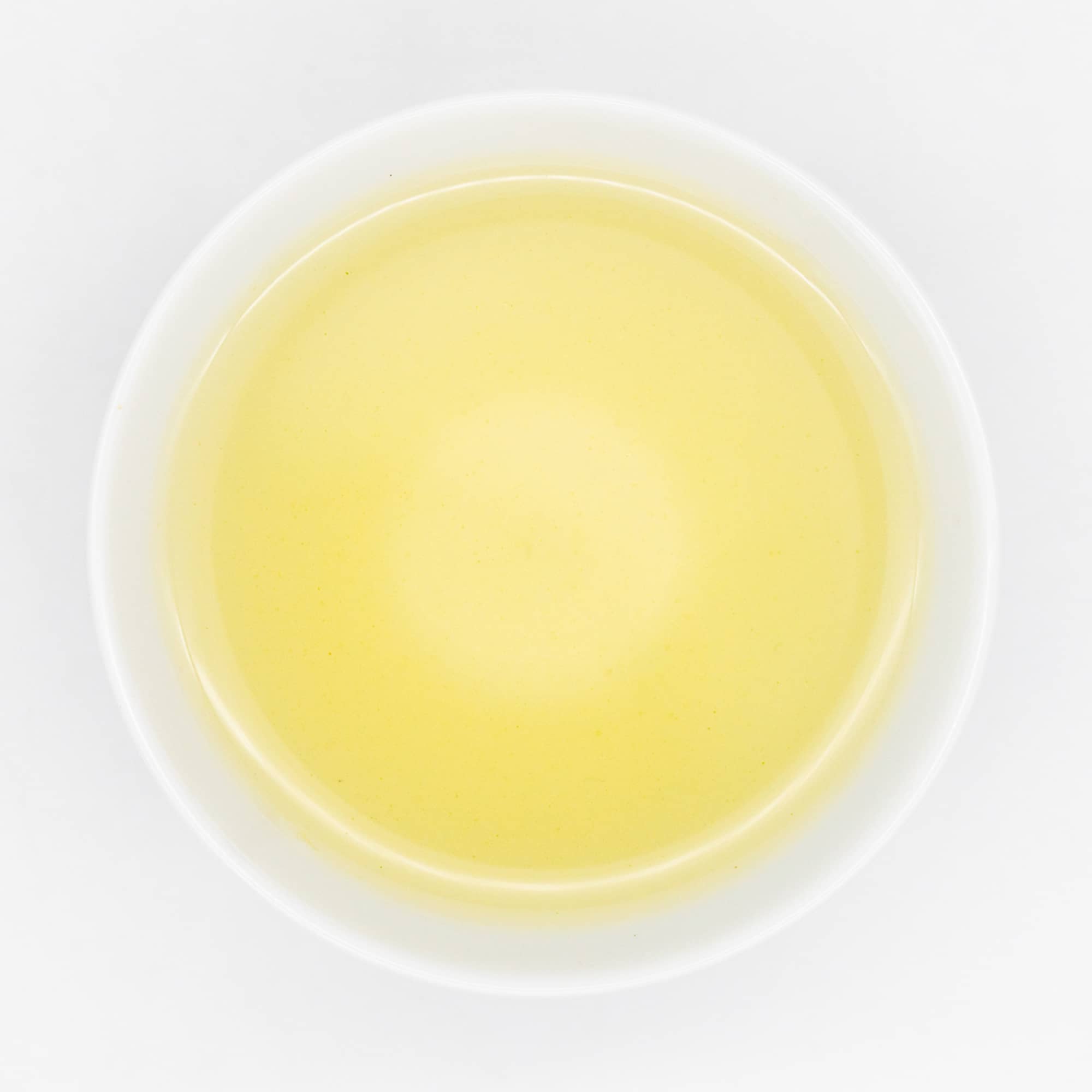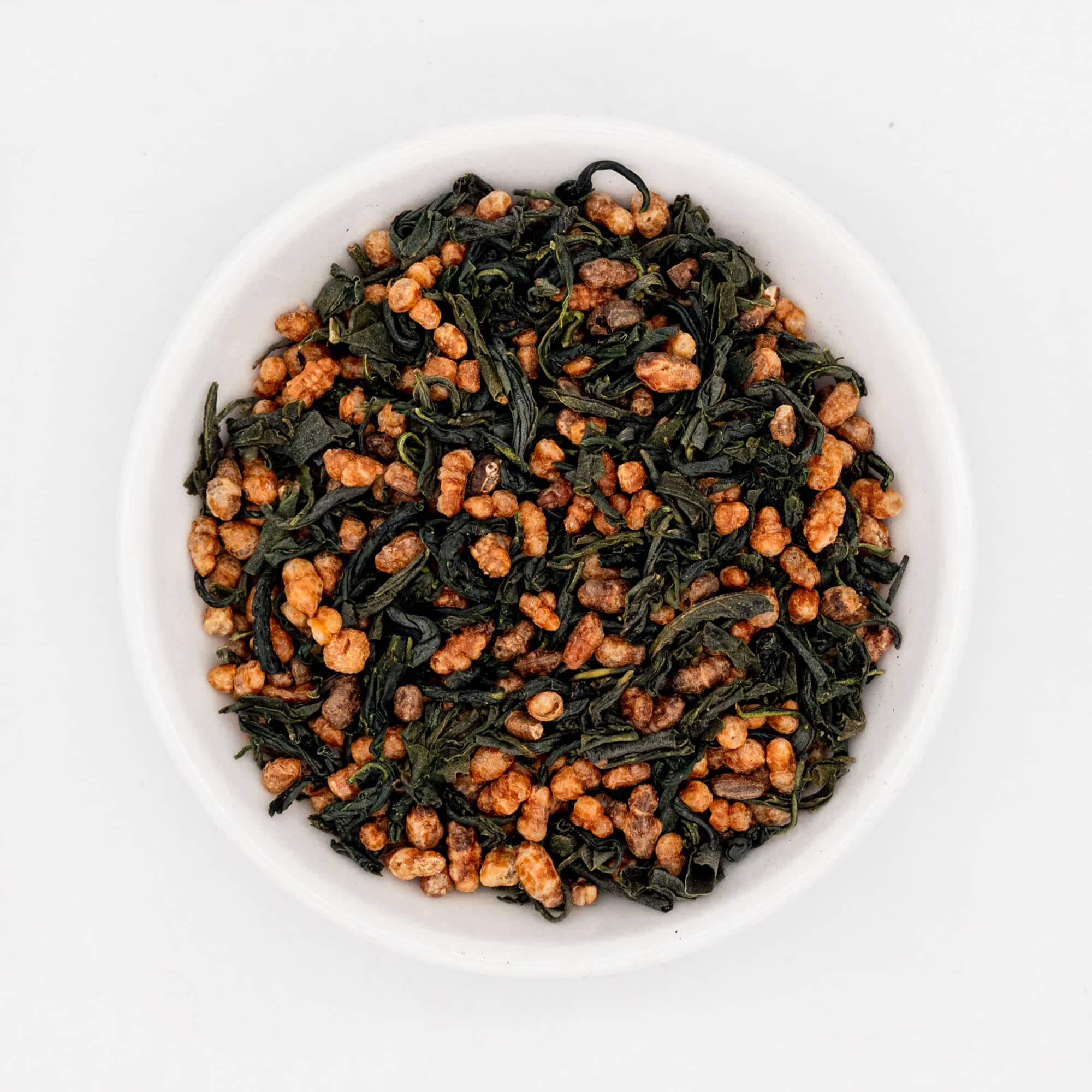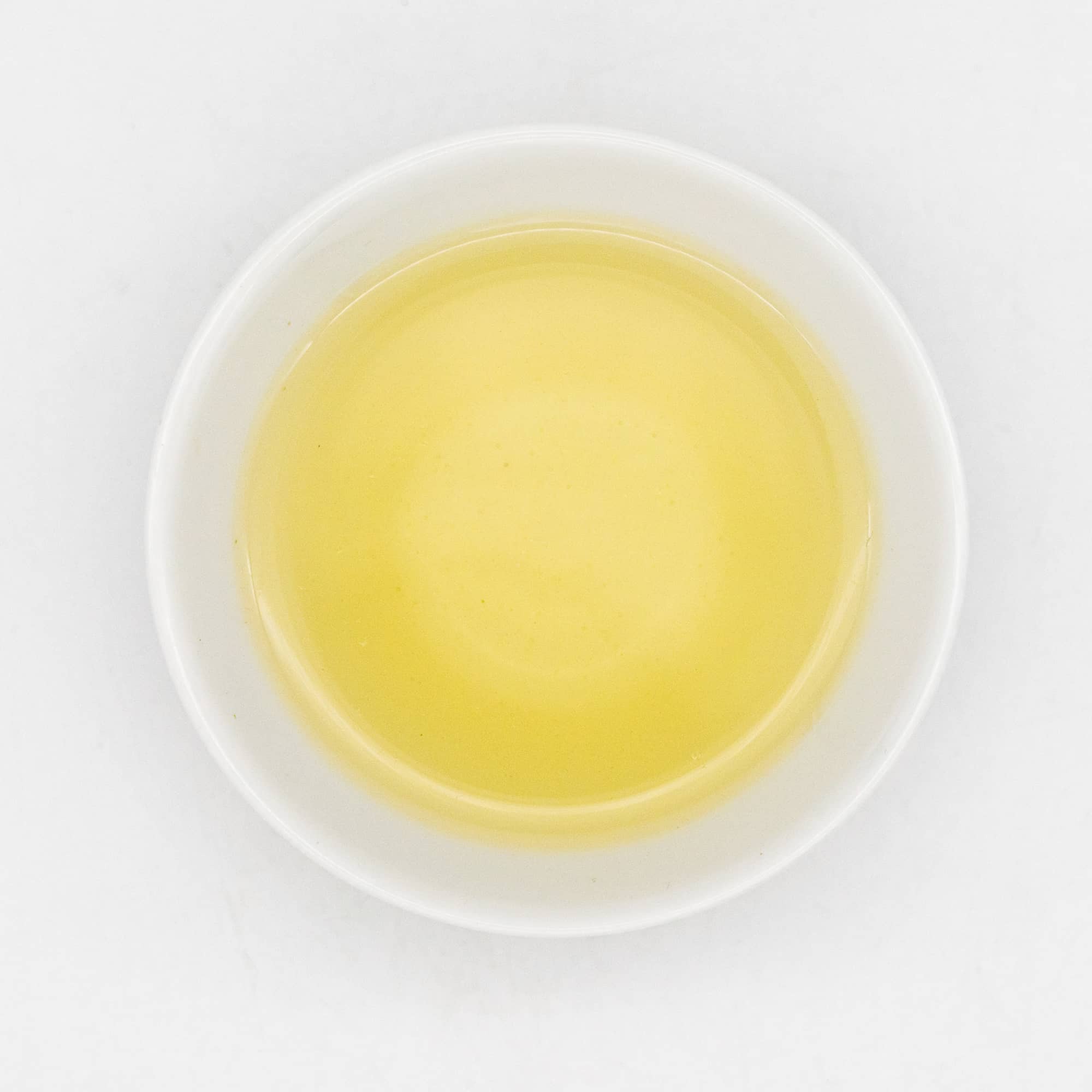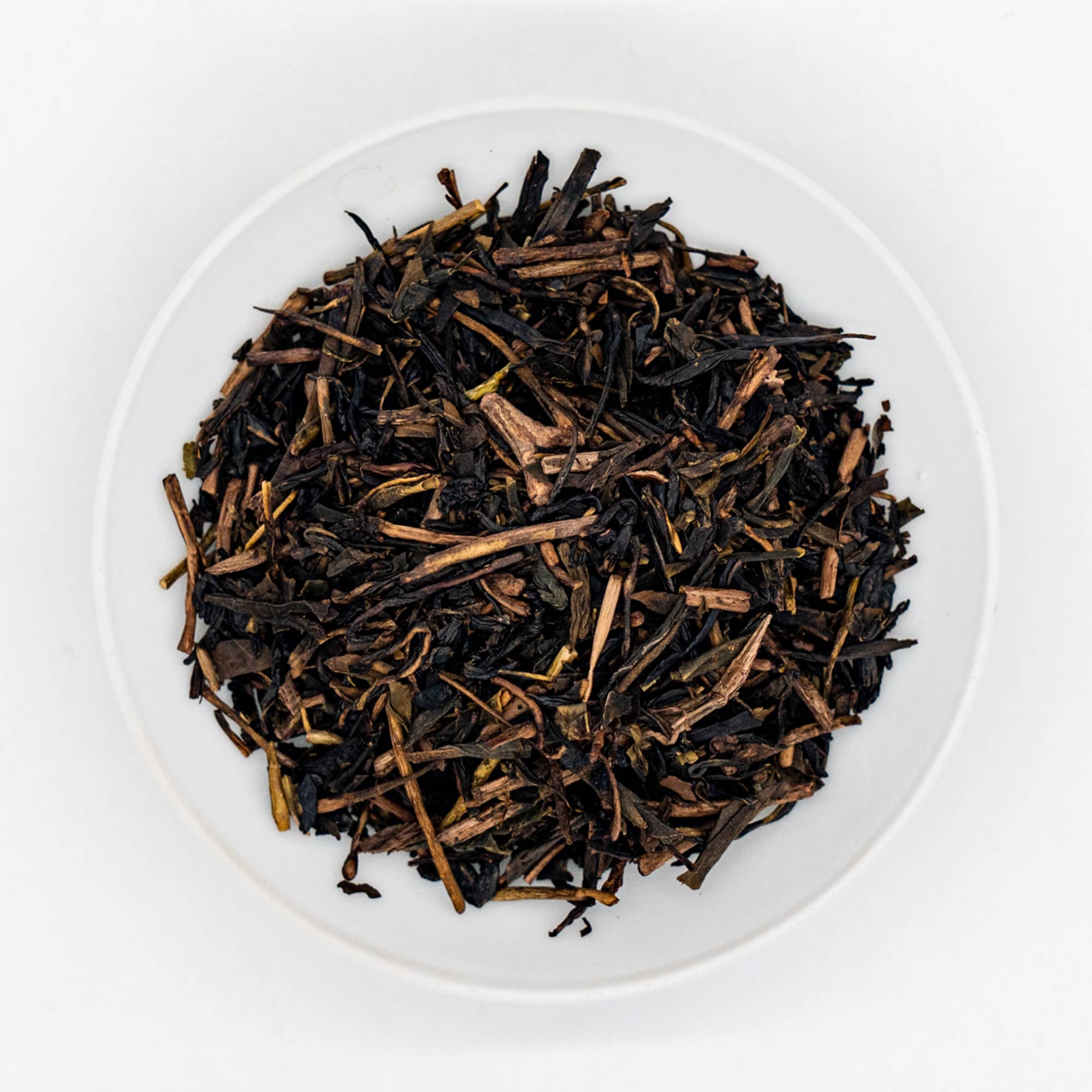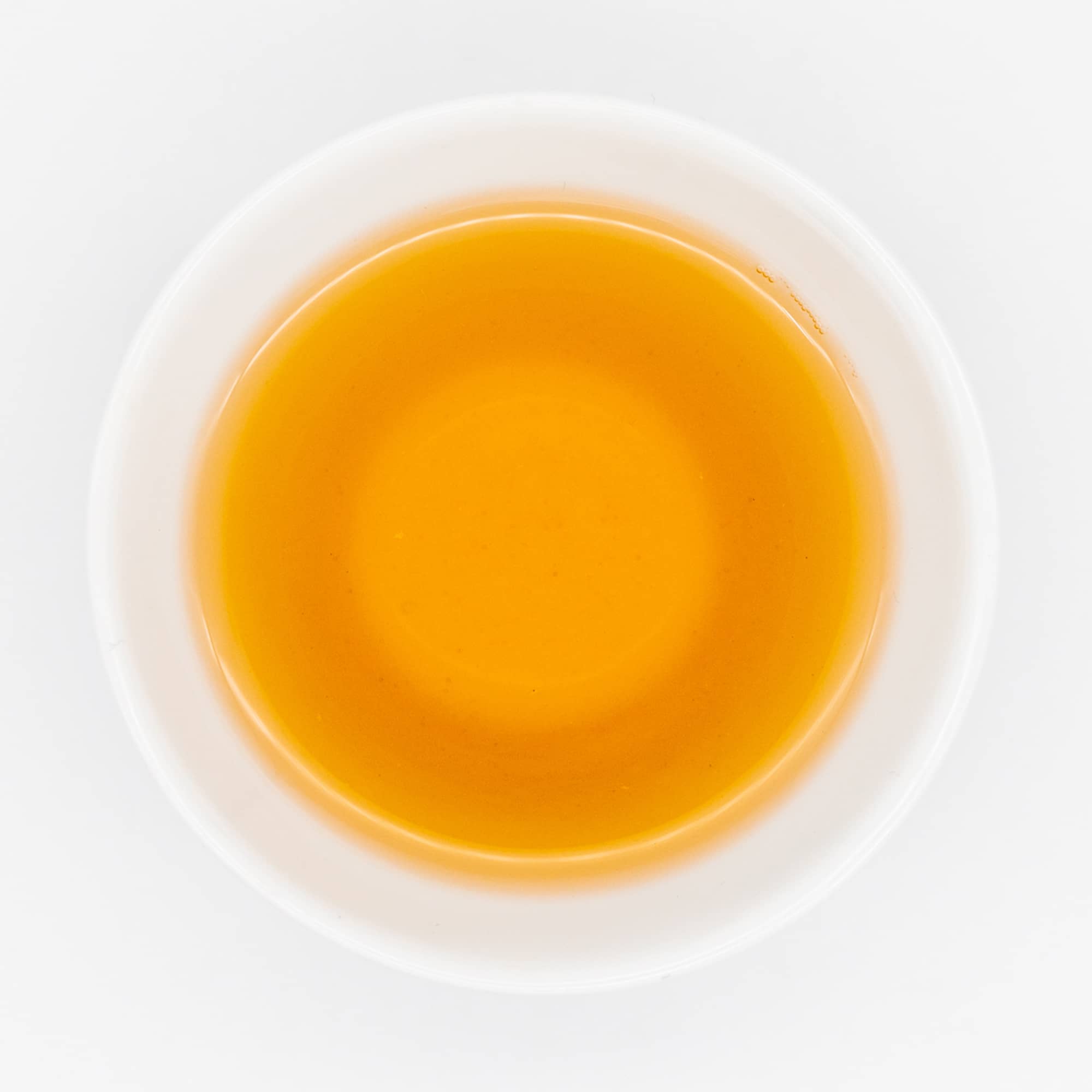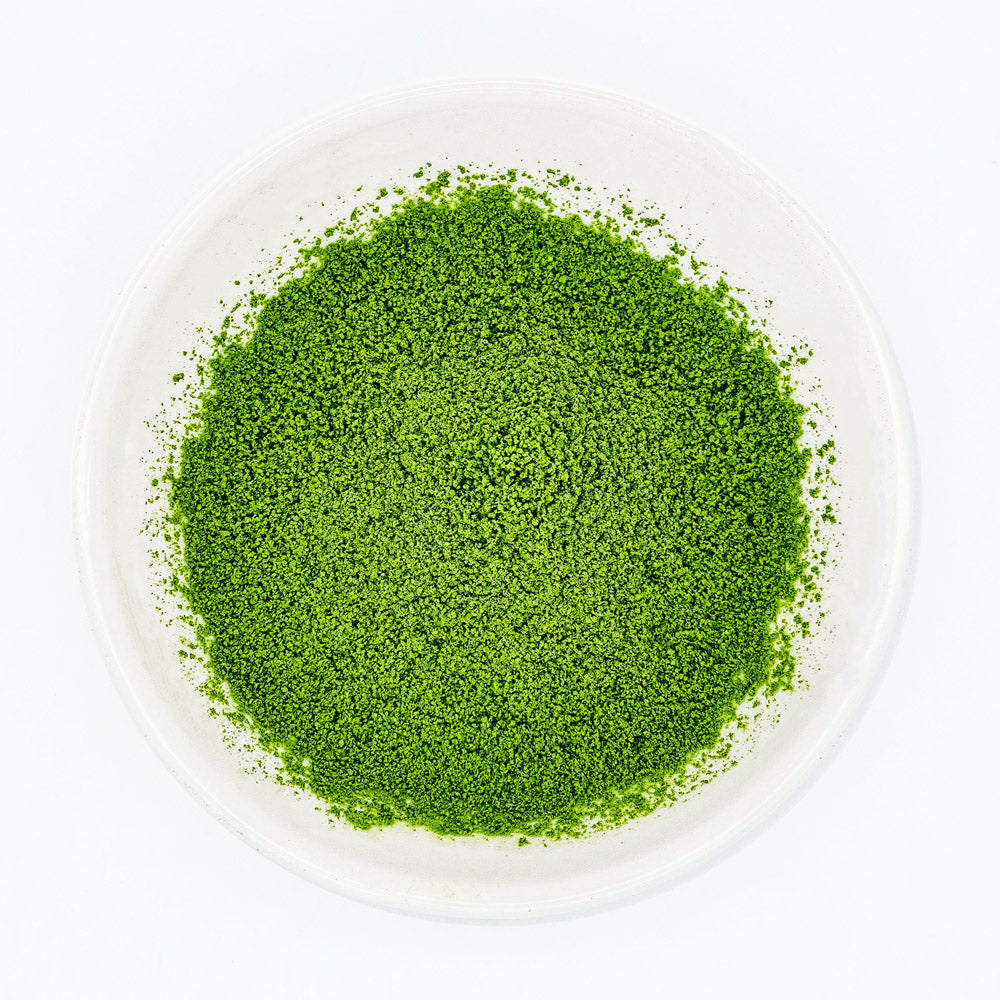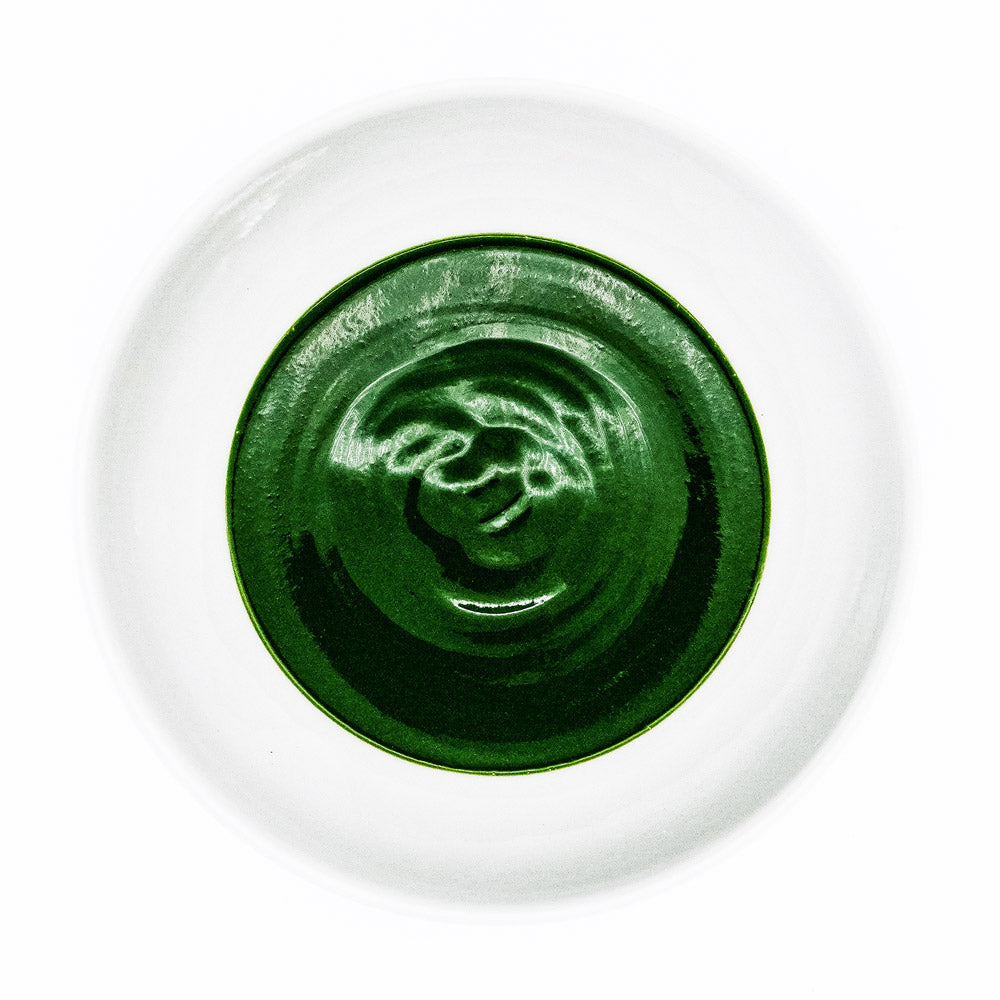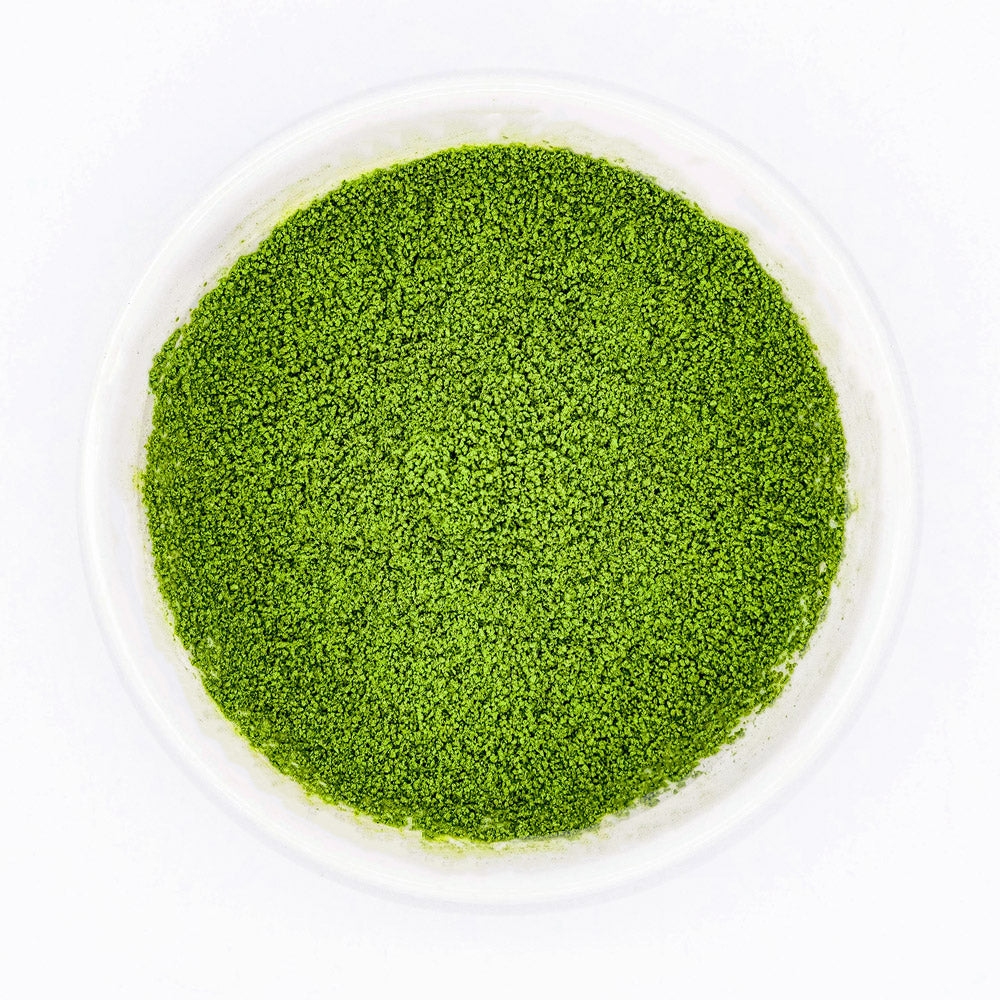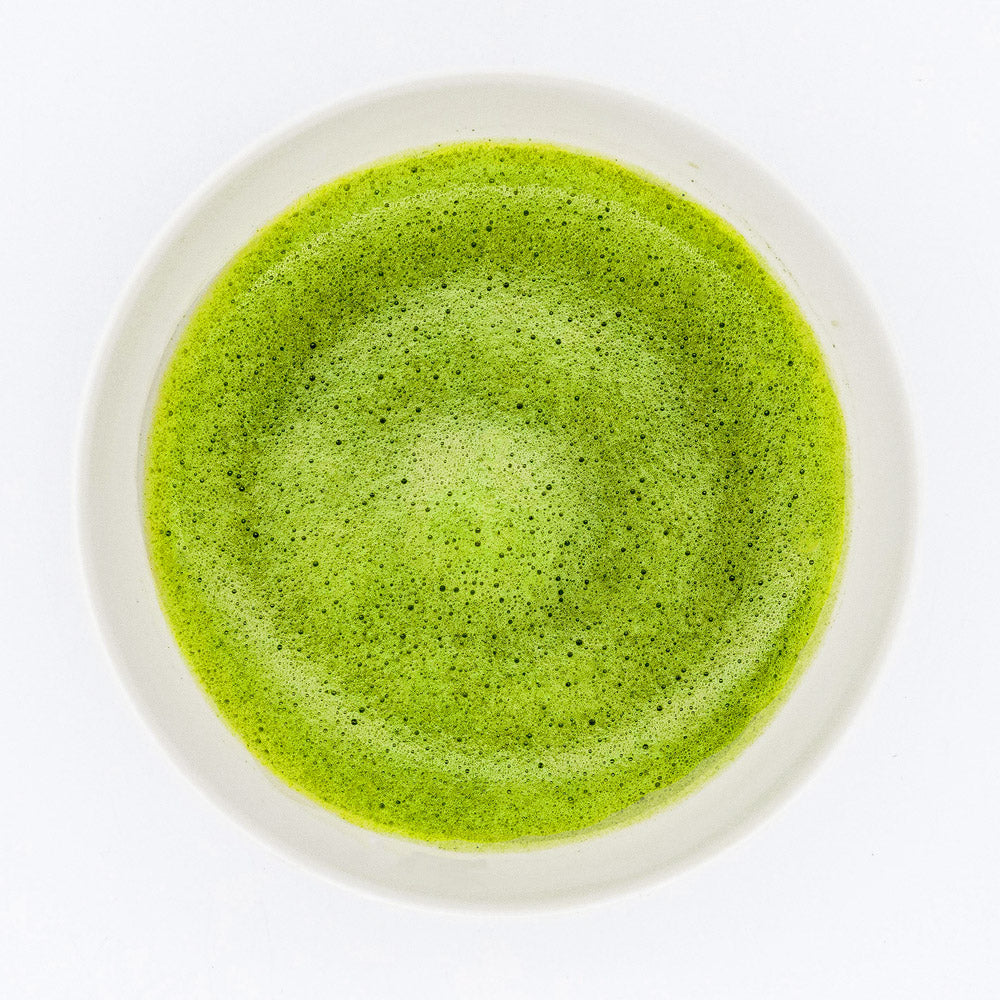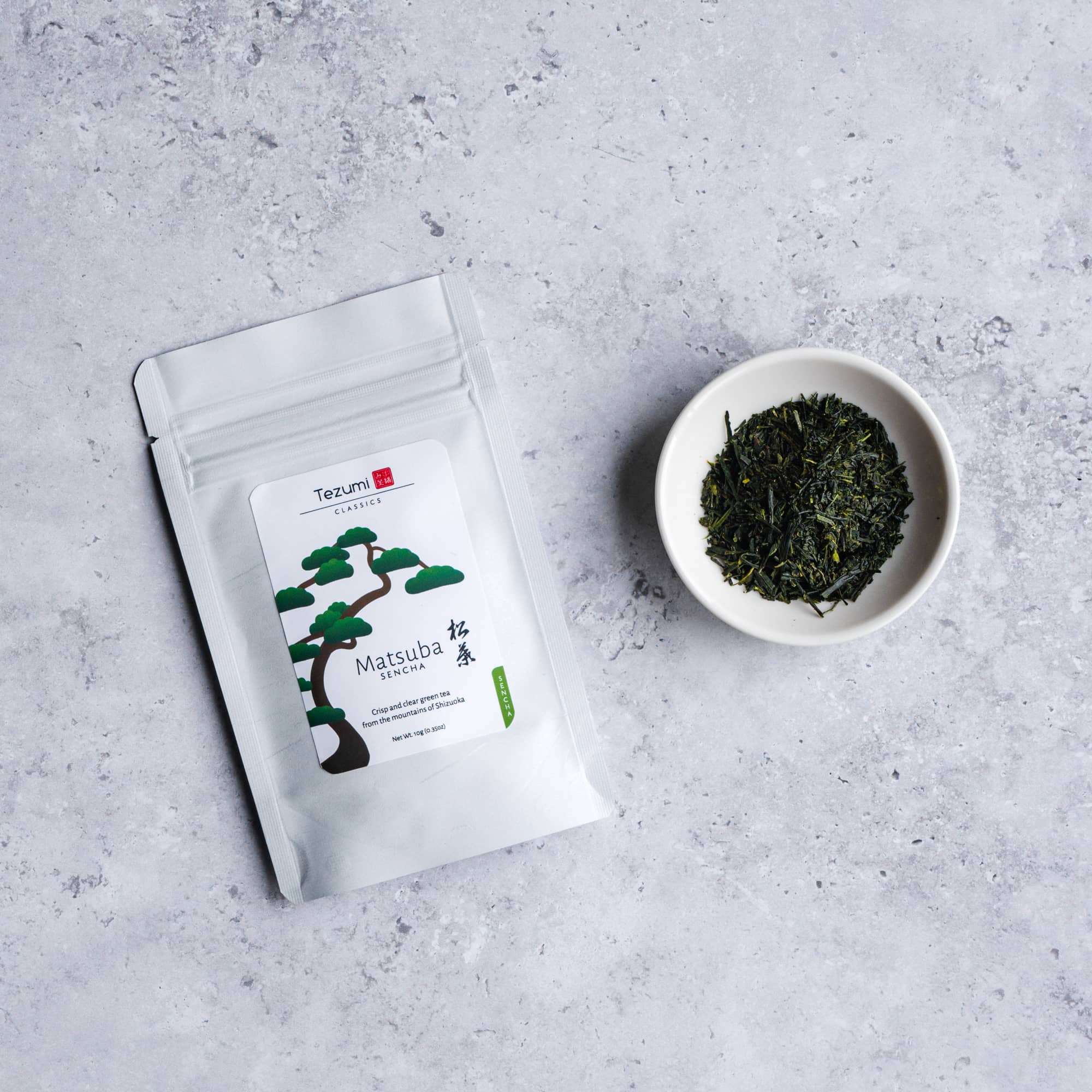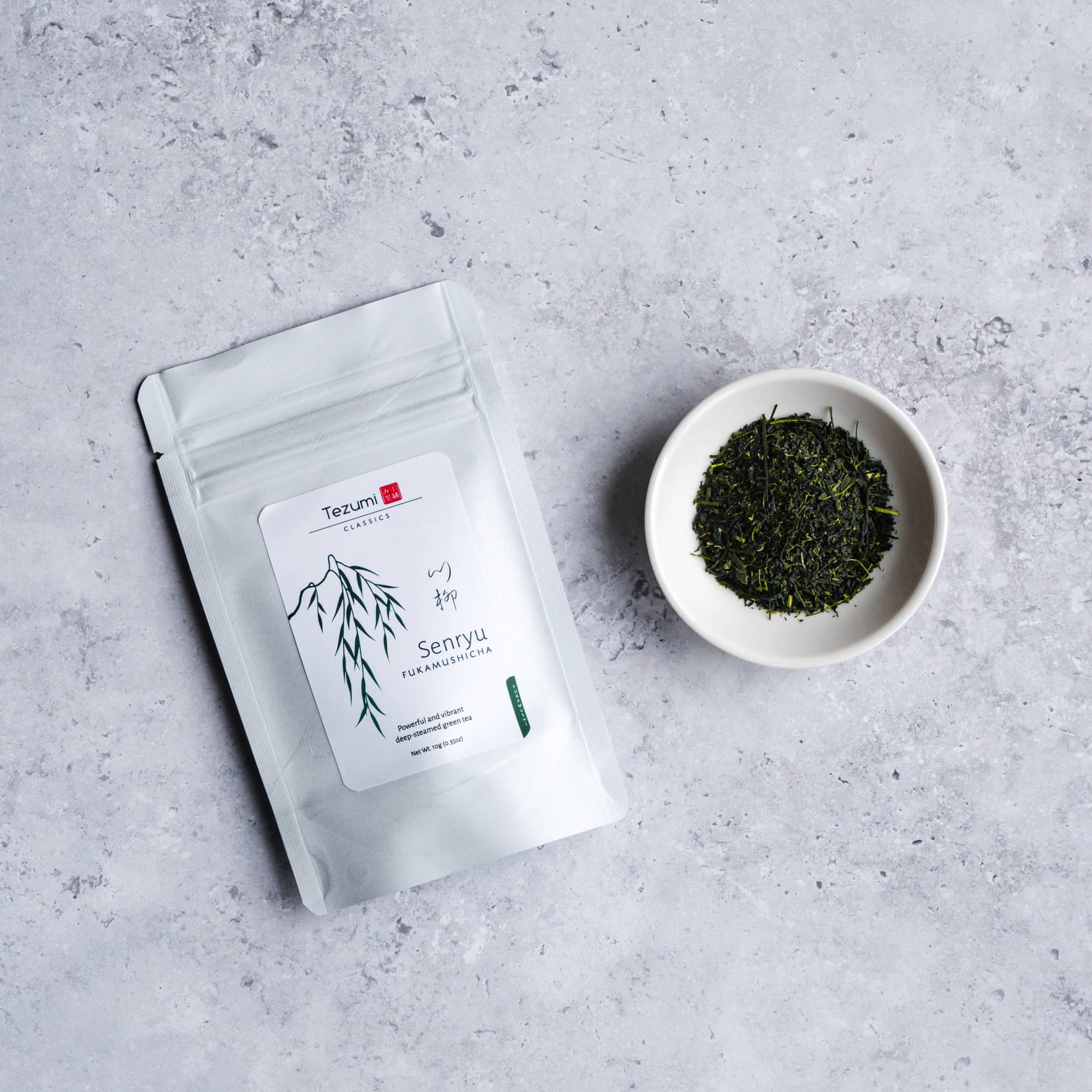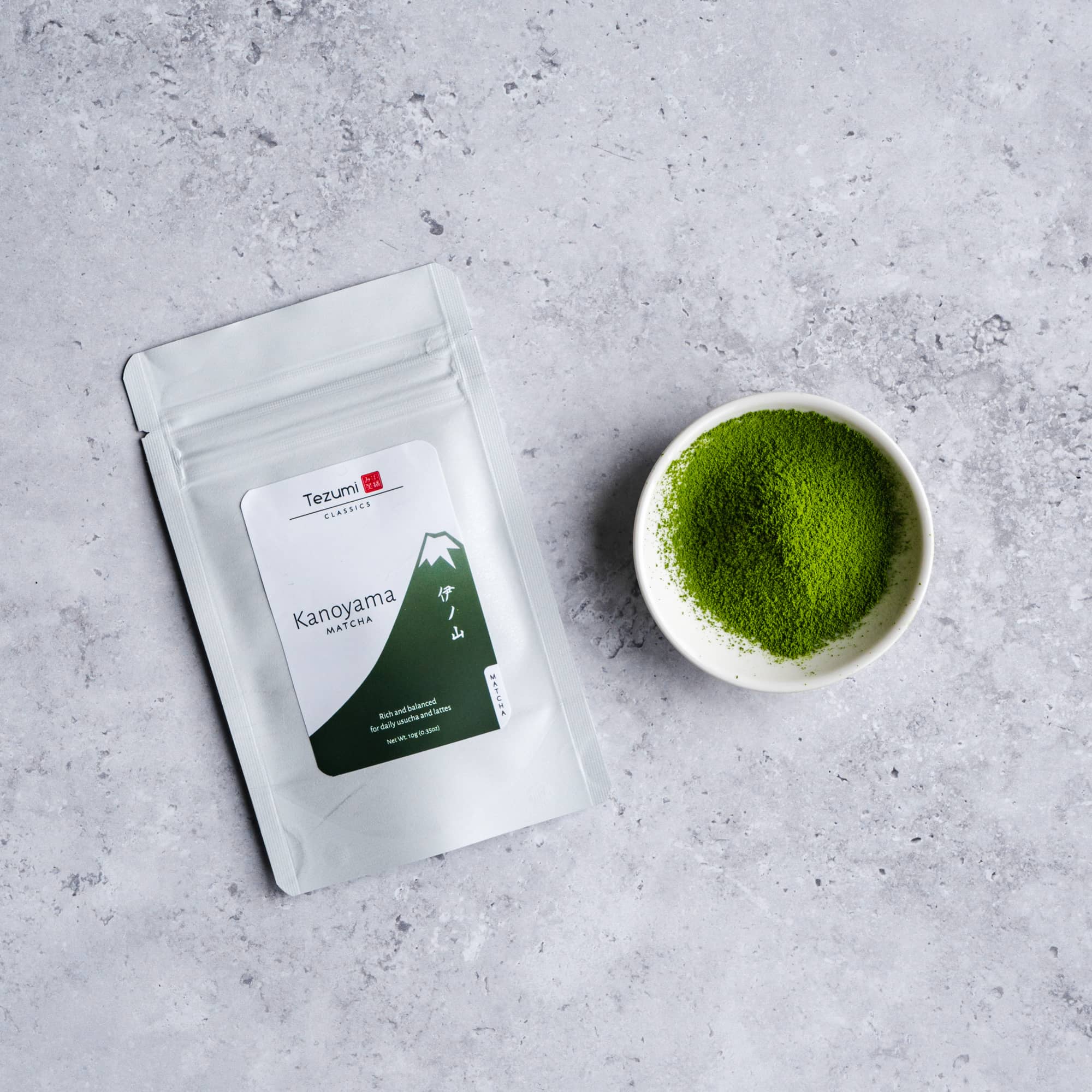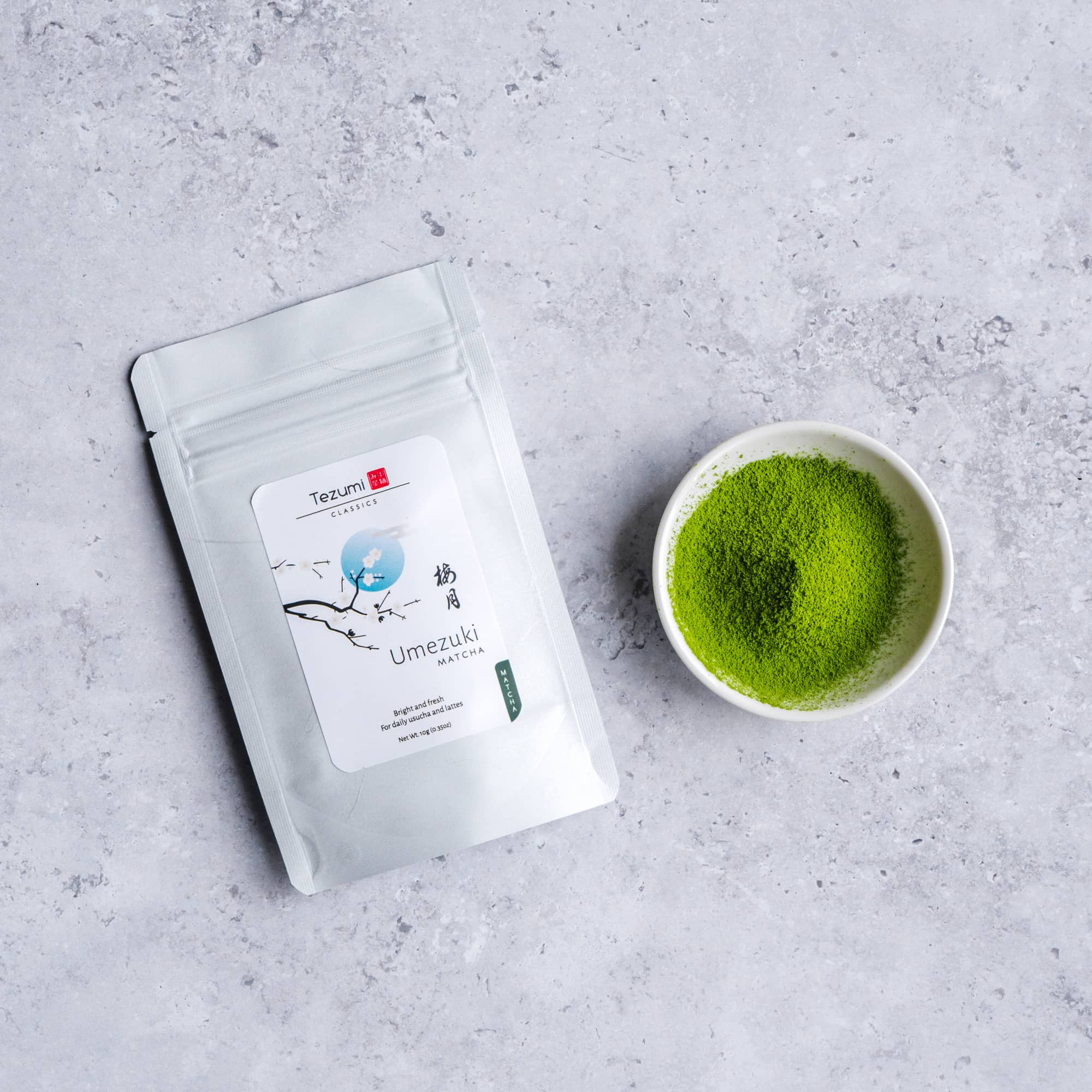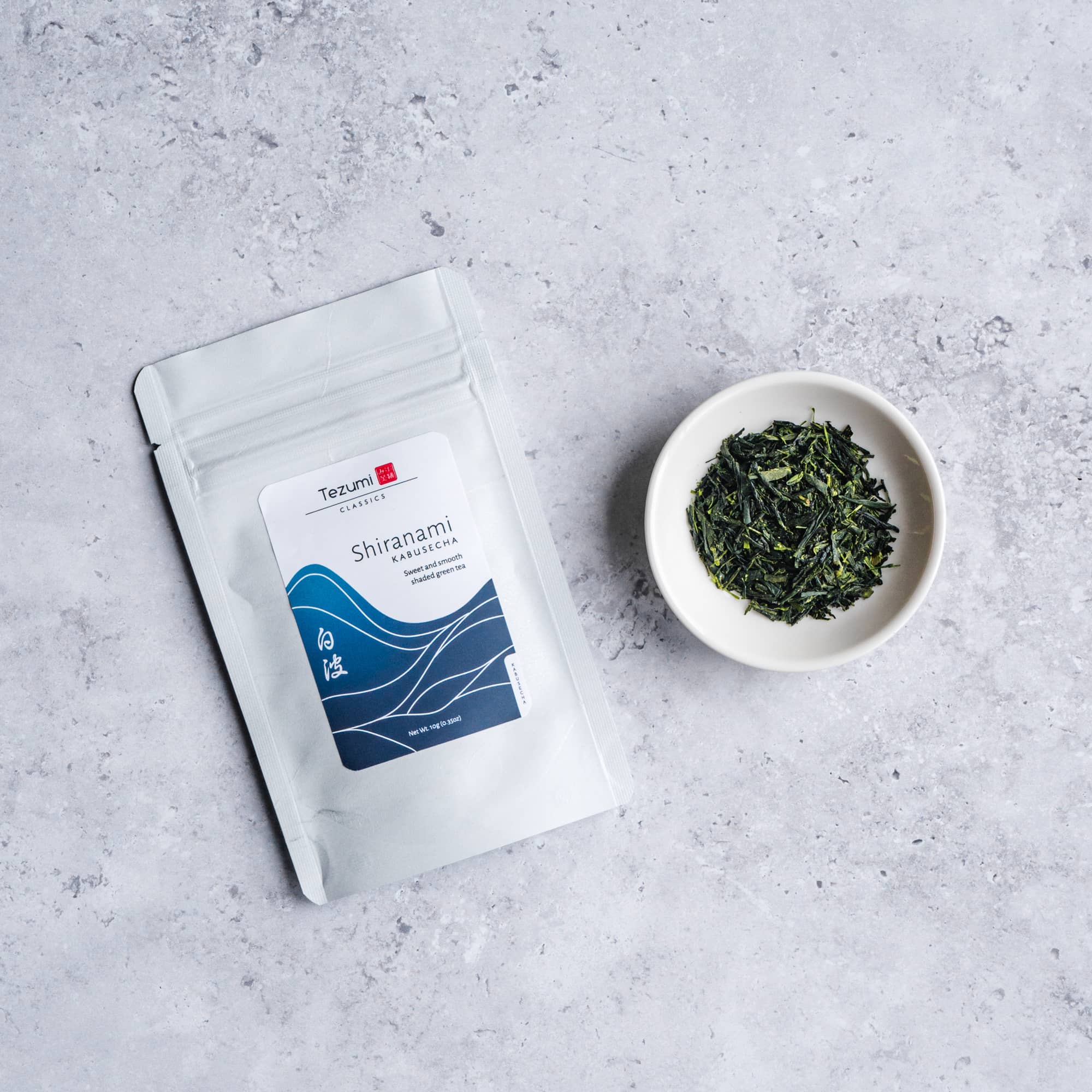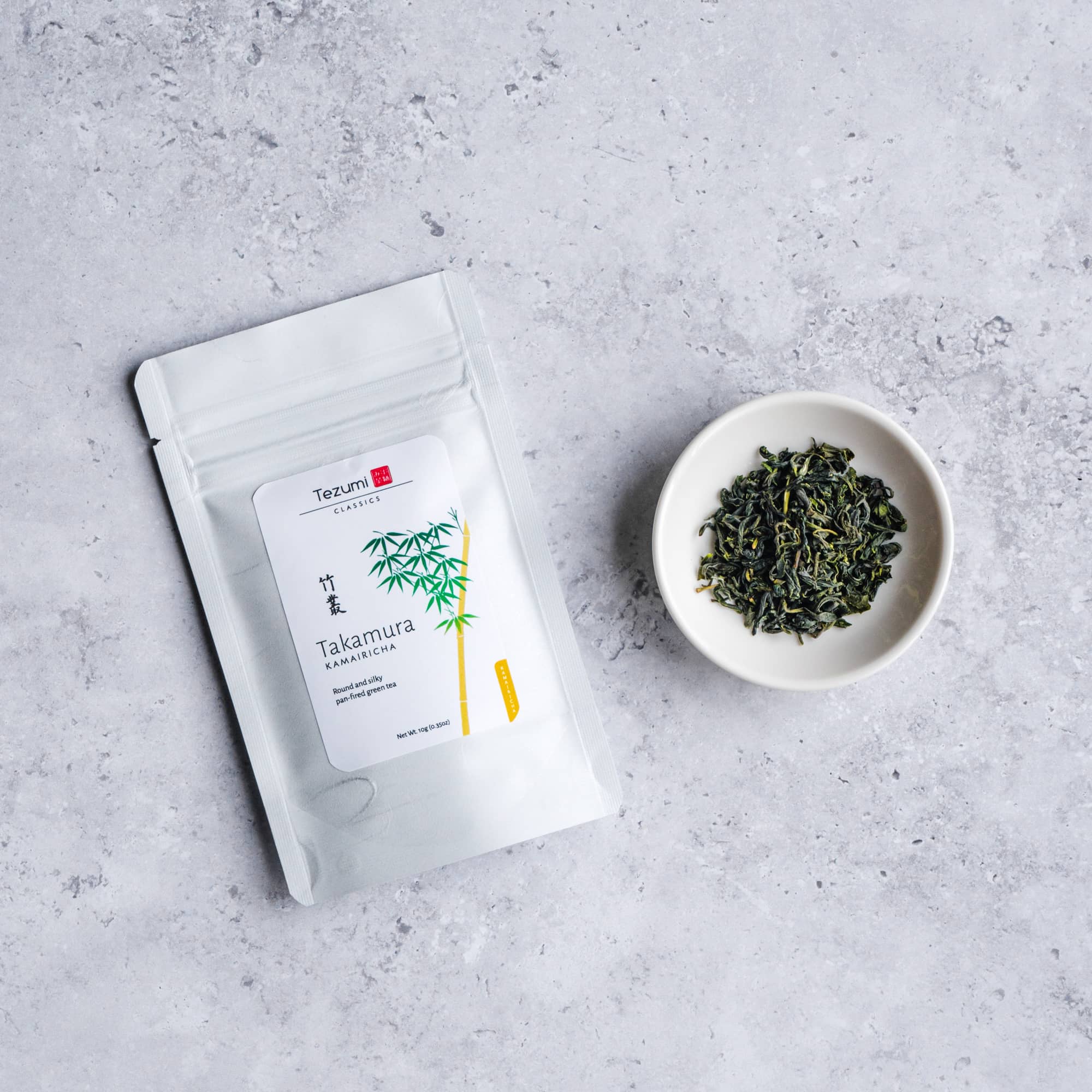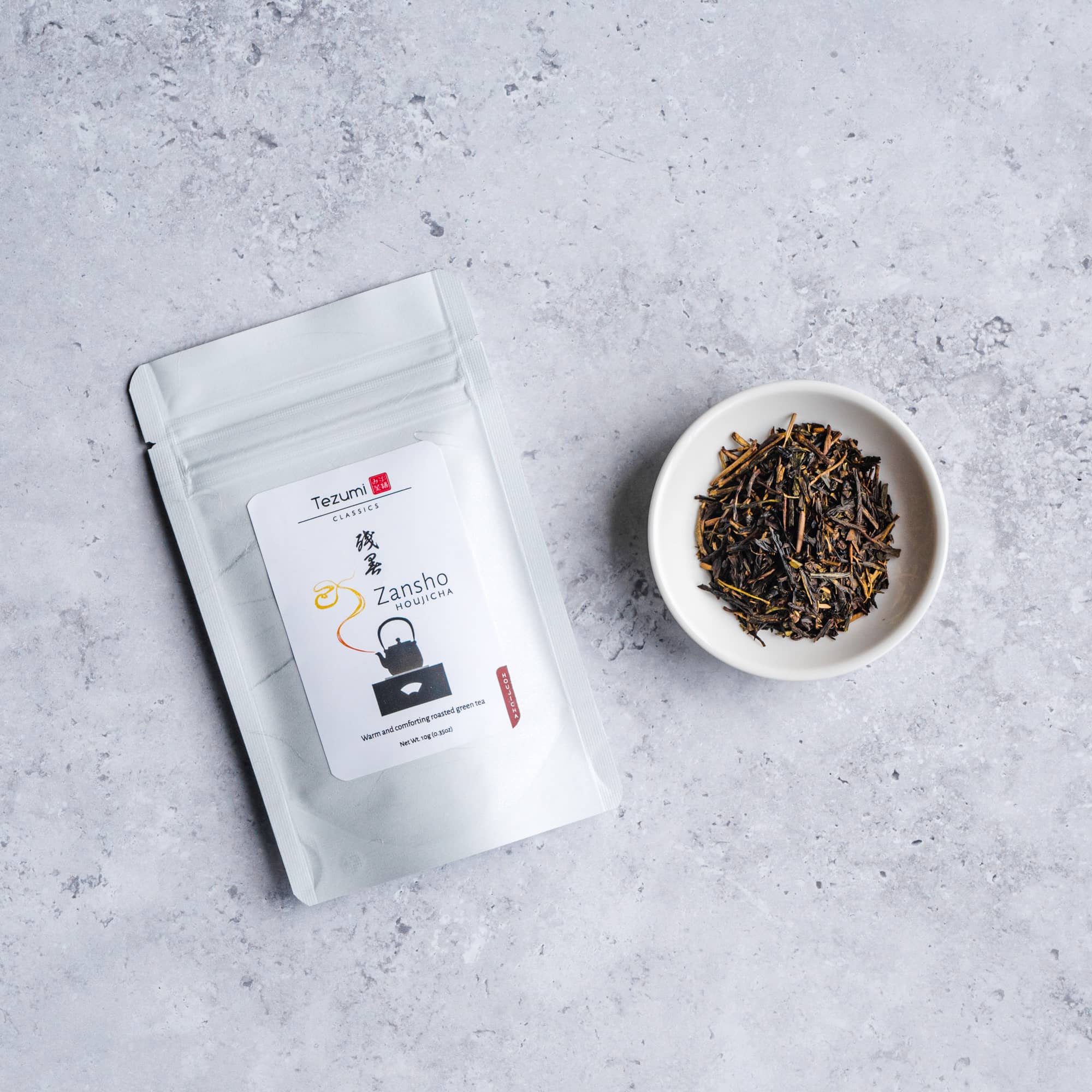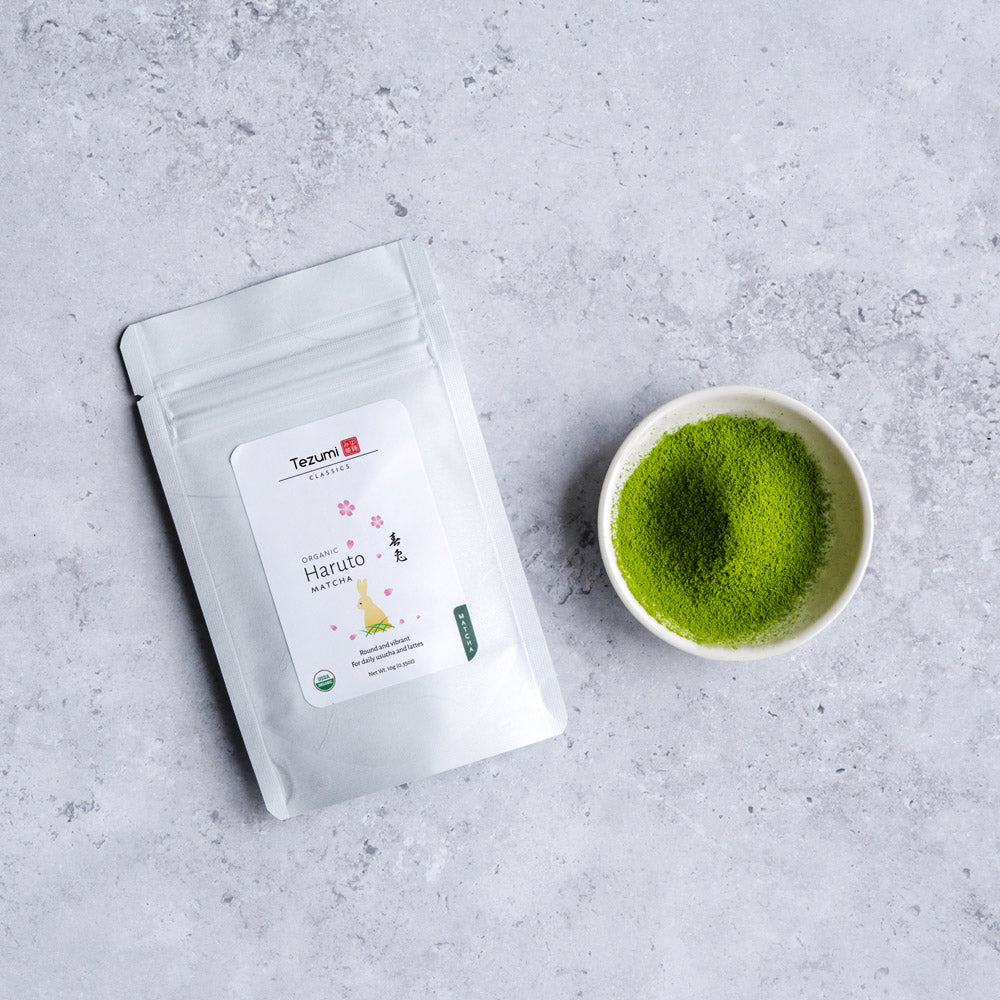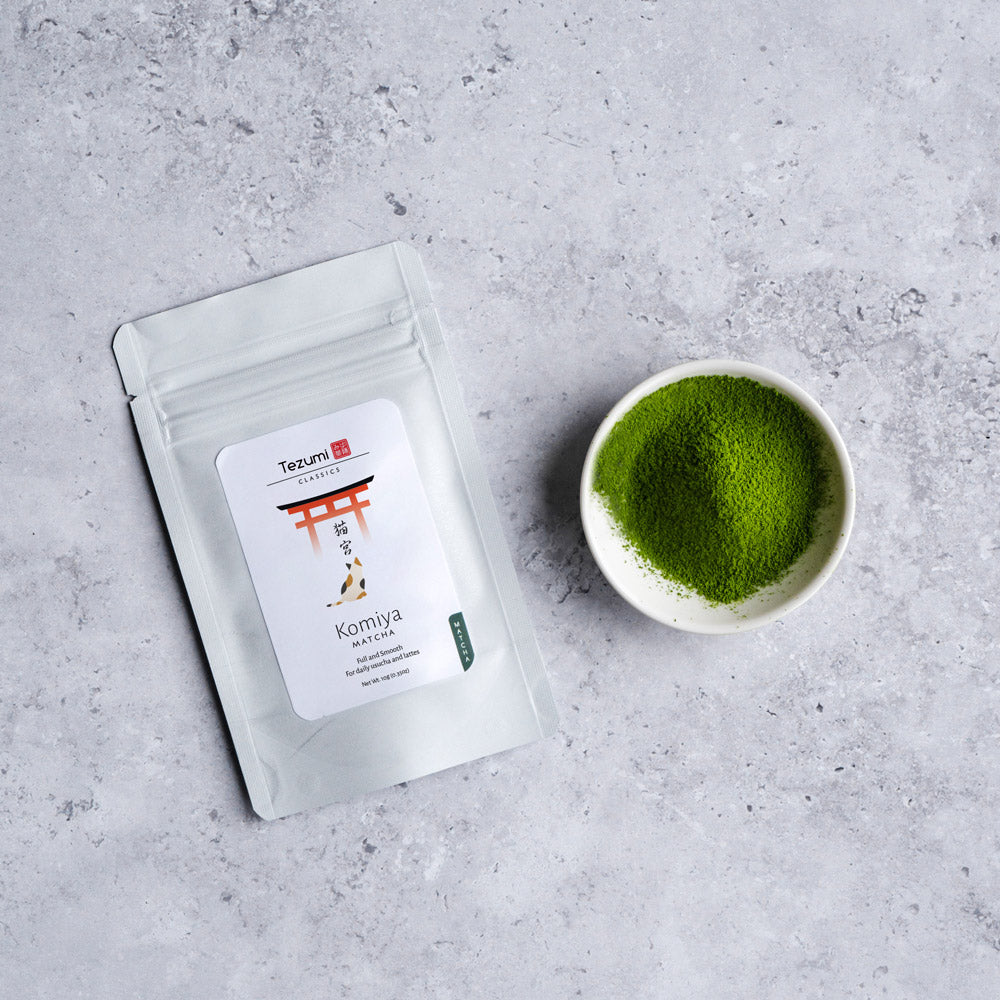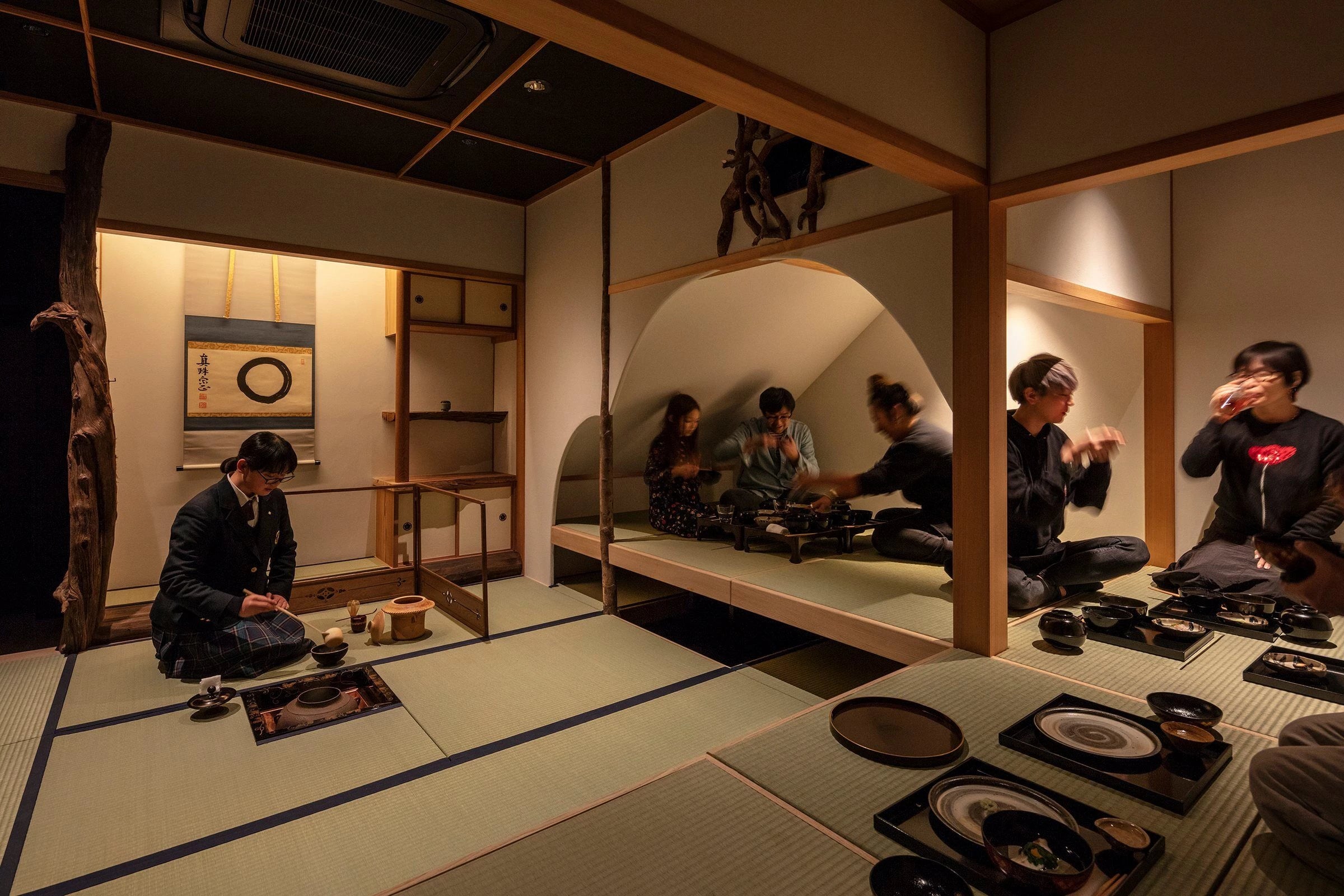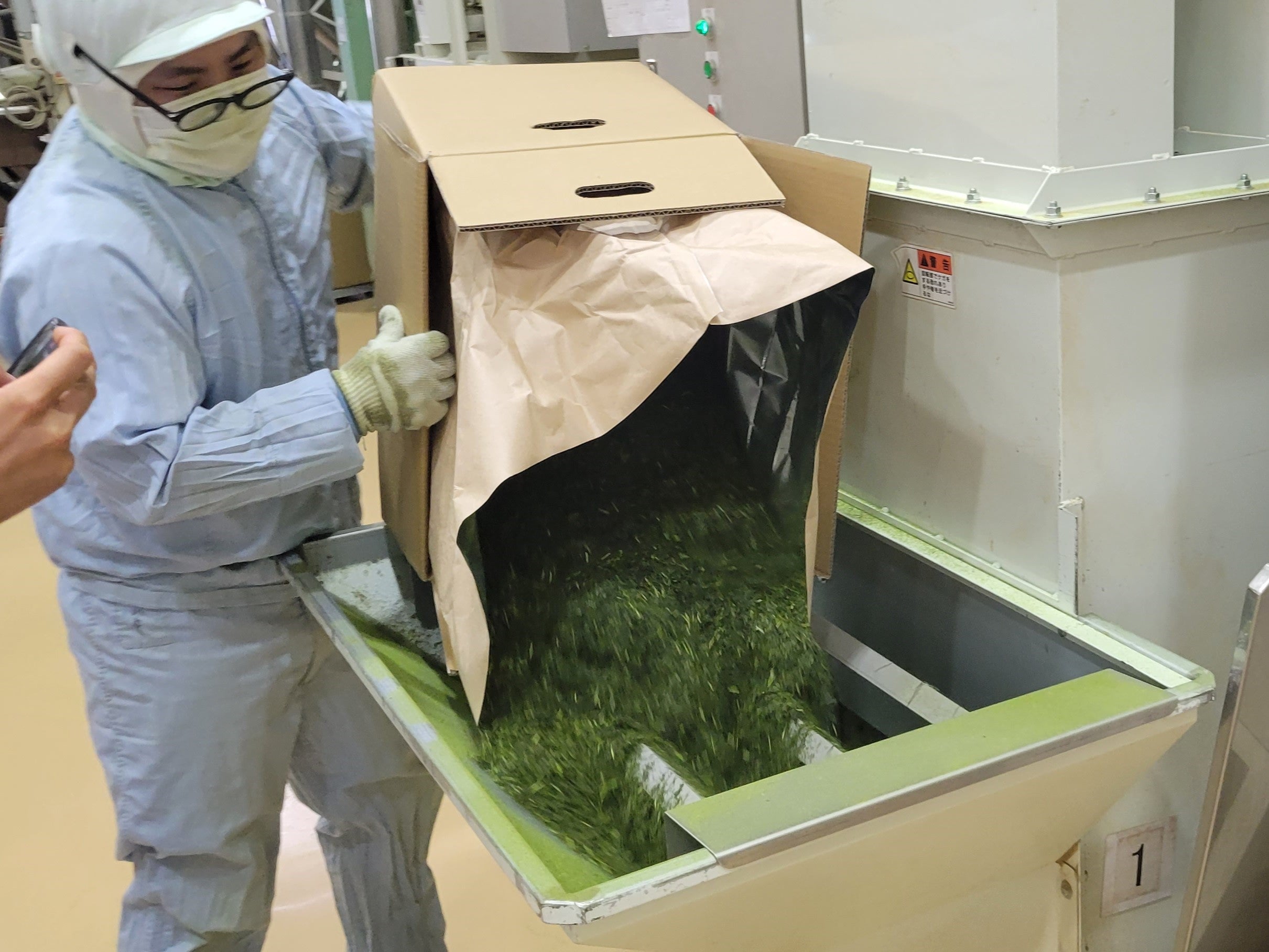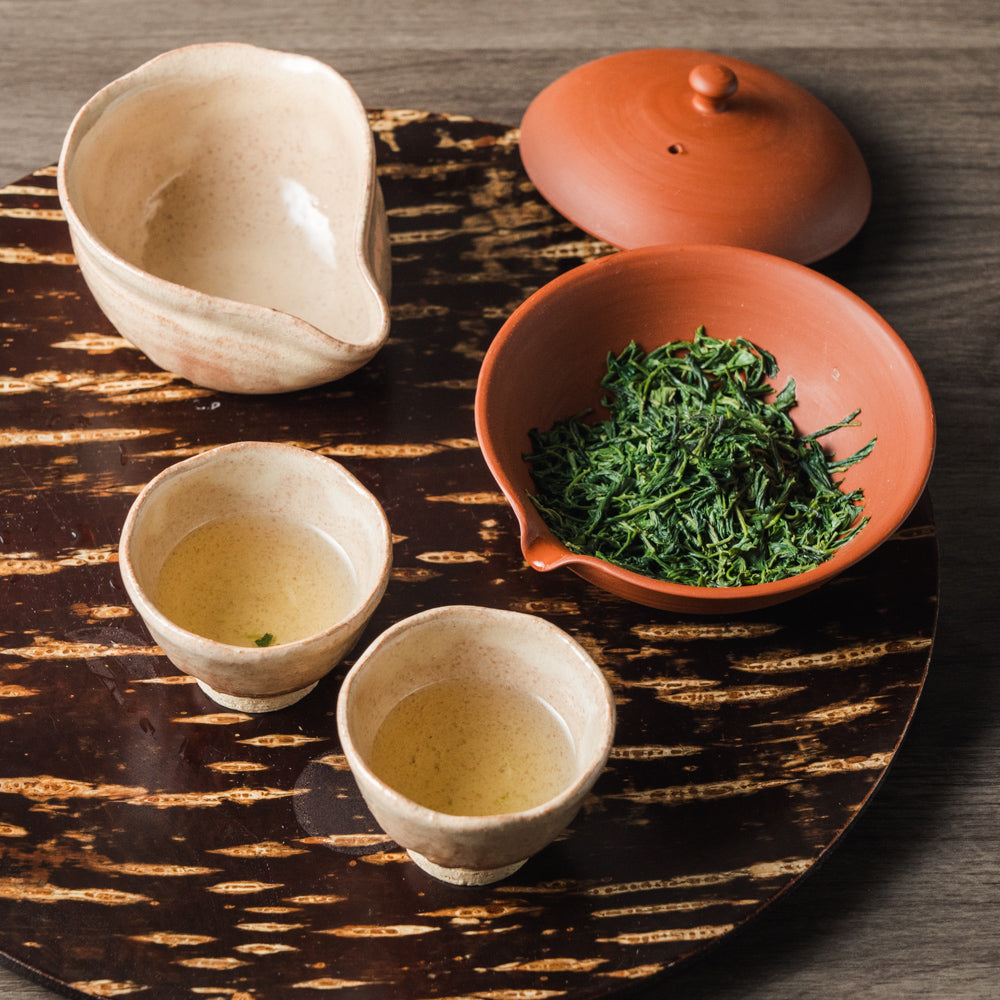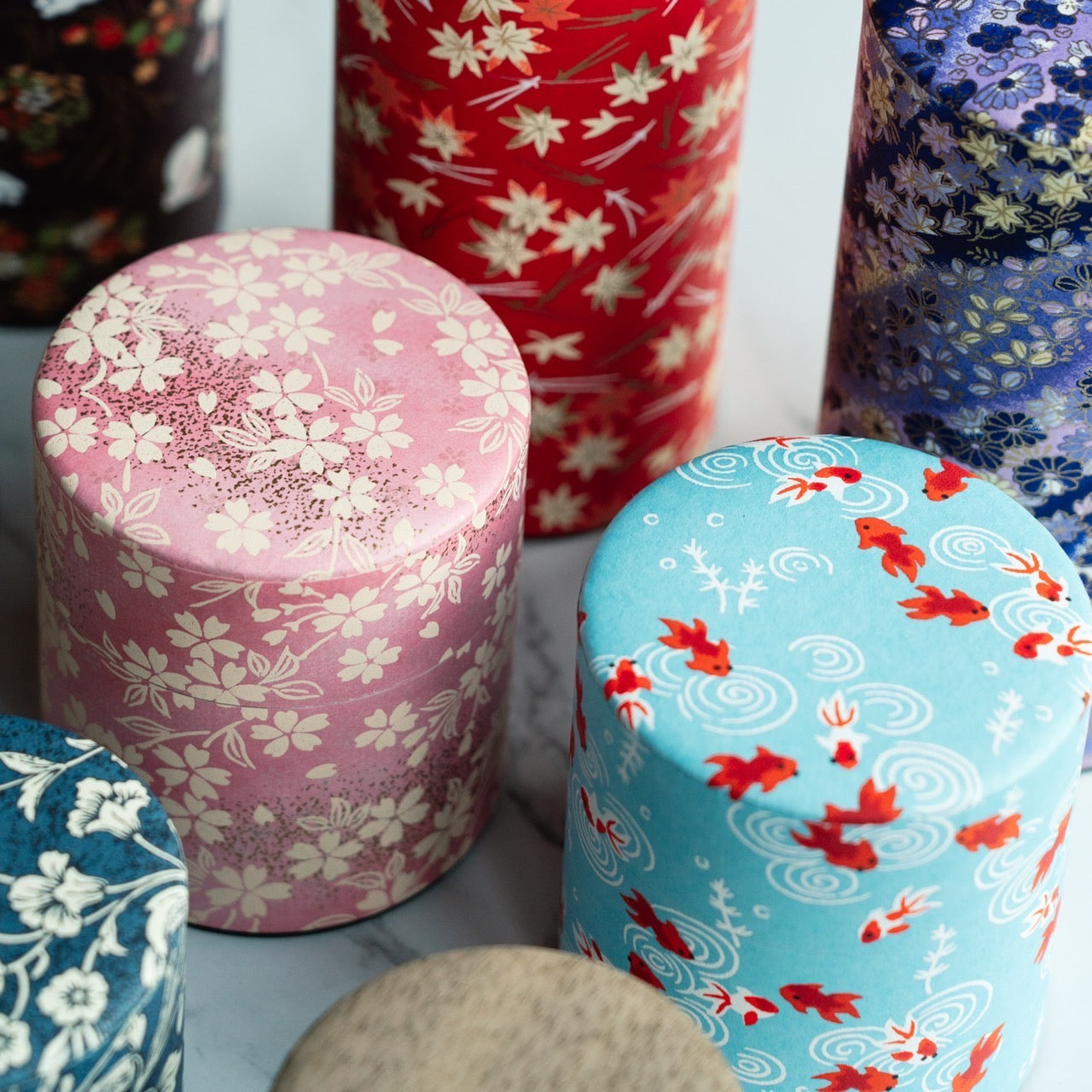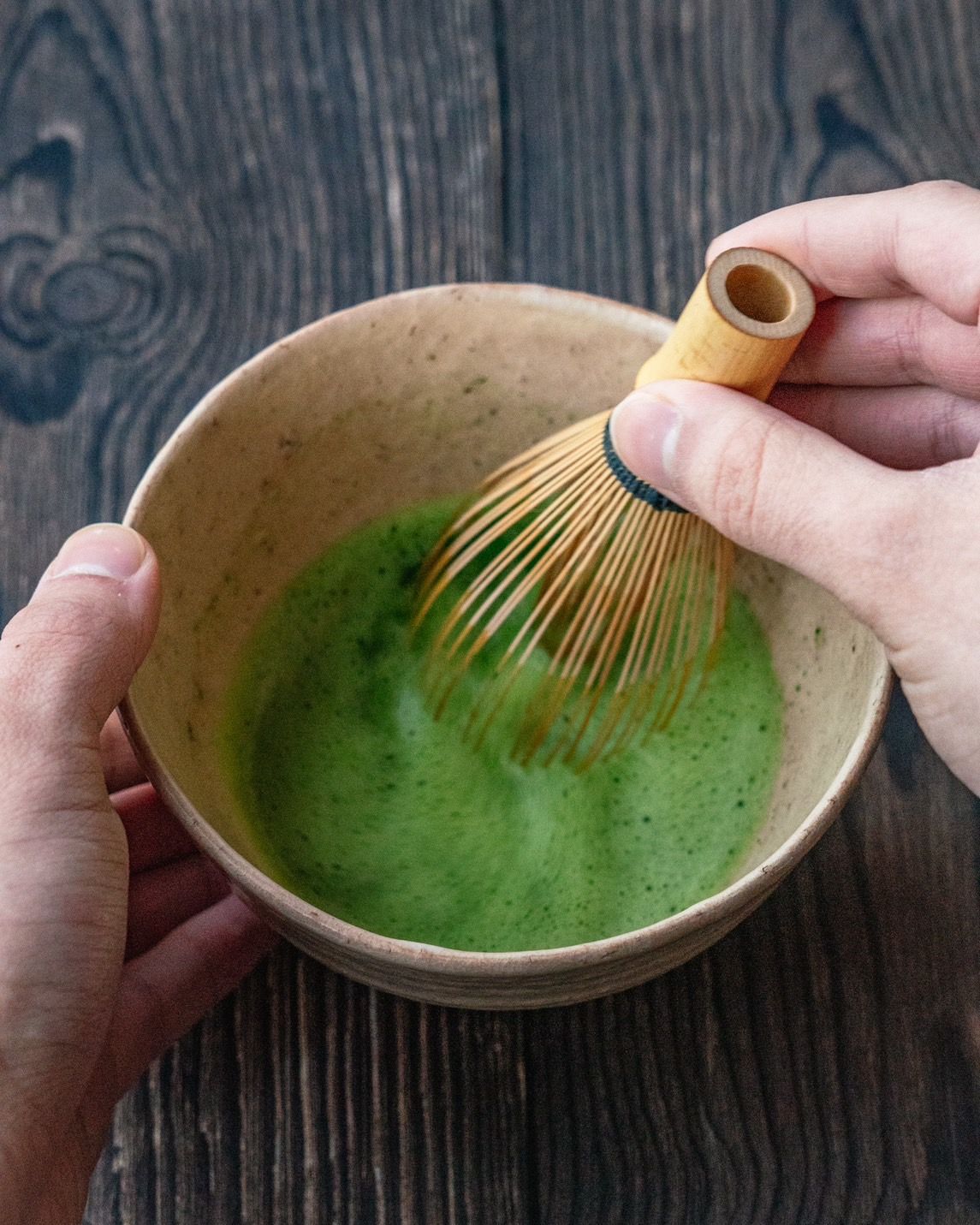This expertly crafted maru-gata Tokoname-yaki kyusu (teapot) is made from Tokoname kokudei (黒泥) clay, which has the same properties as the iconic red shudei (朱泥) but is fired in reduction producing a deep black. The kyusu is decorated with an intricate web of fine mogake (藻掛 - seaweed wrapping) patterns. As the name suggests, this traditional Tokoname technique that dates back to the Edo period is achieved by wrapping each piece with amamo seaweed before firing. In the kiln, the seaweed burns off, leaving its carbonised silhouette draped across pot. In this colouration of red on dark brown, it is often called benishibori (紅しぼり - red squeeze), referring the natural striations of shibori-dyed Japanese textiles.
The pot's body has a unique surface texture which contrasts elegantly with the glossy smooth lid, handle, and spout.
Its built-in ceramic sasame filter is perfect for naturally straining tea, with a wide shape for faster pouring and less clogging. Unlike most Tokoname kyusu, this lid is made in the inset style, similar to the styles of Chinese Yixing teaware. Additionally, the pot has a foot, elevating it slightly off of a table.
Made by award-winning Tokoname craftsman Tadaomi Kato (加藤忠臣) Kōshin Kiln (香臣窯).
Tokoname-yaki (常滑焼) is a type of Japanese pottery that traditionally comes from Tokoname in Aichi Prefecture, Japan. The site of one of Japan’s Six Ancient Kilns, pottery has been made in Tokoname since the 12th century.
Today, Tokoname ware is known for its iconic brick-red clay called shudei. Famously used in teaware and bonsai pots, this clay’s vibrant colour comes from its rich iron content. Tea steeped in unglazed Tokoname teapots is said to have a mellower taste.
Dimensions:
14.5cm (5.7in) - width (including handle)
10cm (3.9in) - height
270ml - capacity
Condition: New
This Japanese item ships from the United States.


